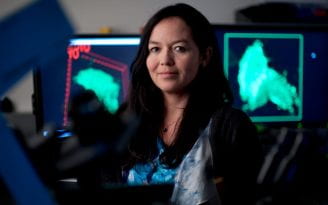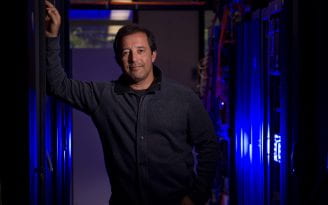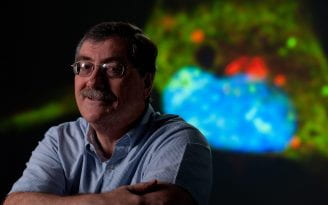Shedding (fluorescent) light on Ebola
A fluorescent green limb pokes outward from a cell wall under a high-powered microscope. The filament is loaded with VP40, an essential protein in the Ebola virus. The microscope is capturing it budding out in real time. It’s followed by another and another. Those green protrusions may be the means by which the deadly virus […]





